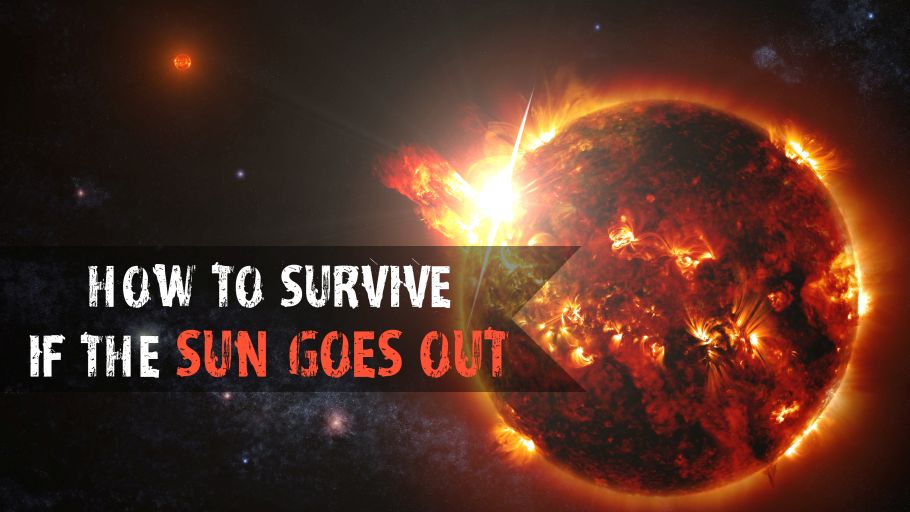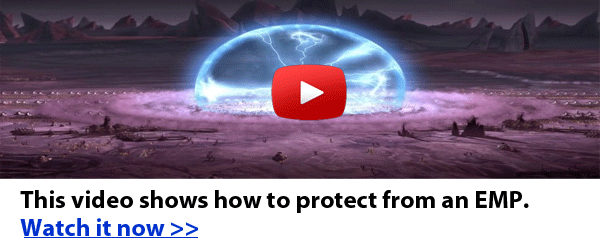
The sun is our source of vitamin D, it keeps the Earth warm enough for life and it nourishes our plants so that we don’t starve, so life as we know would change forever if the sun were to go out. The question for many is “Can we survive if the sun goes out?” The final answer is simple, but the hows and whys are often supposition based upon scientific speculation.
Though most physicists say that the sun’s sudden termination is physically impossible, others say that it could happen. The results would quickly be chilling (see what I did there?).
The Earth does have some insulating abilities that would keep us from freezing immediately, but it wouldn’t take long, in the scheme of things, for the Earth to reach temperatures that couldn’t sustain life.
Right now, the Earth’s average surface temperature is about 80 degrees F (300 kelvin, which is how they measure it). Some scientists speculate that the surface temperature would drop by a factor of two every two months. In other words, two months after the sun went out, the temperature would drop to -189 degrees F (150 kelvin) and two months after that, it would reach -325 degrees F (75 kelvin) and it would just keep dropping.
Other scientists speculate that it would take a bit longer than that – within a week the temperature would be below zero and in a year it would be -100. That would continue until the planet reaches a stable -400 degrees.
Obviously, that isn’t sustainable even one month after the sun goes out, so is it possible to survive? Yes, for at least a short amount of time if you’re only considering temperatures.
 The greatest chance for survival would be to do as Iceland does – convert to geothermal or nuclear-powered habitats. You could also survive, with vitamin A and D supplements and a significant amount of stored food, in submarines deep in the ocean because the deepest parts of the ocean won’t likely freeze at least for the first few hundred thousand years.
The greatest chance for survival would be to do as Iceland does – convert to geothermal or nuclear-powered habitats. You could also survive, with vitamin A and D supplements and a significant amount of stored food, in submarines deep in the ocean because the deepest parts of the ocean won’t likely freeze at least for the first few hundred thousand years.
We could continue to harvest volcanic heat for several hundred years so if we found a way to continue the photosynthesis that is required for plant growth, we could, in theory, survive for that long in some type of insulated habitat.
The reason that vitamin A and D supplements would be necessary, primarily, is because they are responsible for calcium use in the body. Without these vitamins, our bones would eventually (within your lifespan) become so brittle that even a simple fall or slight trauma could shatter our bones.
Fish could survive deep in the ocean so we could use those as a source of food so if we manage to find a way to produce plants, we’d be good.
I mentioned earlier that we could survive if we are only considering the heat and vitamins that the sun provides. However, those factors aren’t the only problems or even the biggest ones, that we would face if the sun were to go out.
SUGGESTED: Electromagnetic Pulse (EMP) Effects
The sun also provides gravity for the earth. Our mass and physical makeup hold us as the third planet from the sun because of the sun’s gravitational pull. If the sun goes out, we’d spin out of control into space.
The biggest optimists among us say that we may spin into another galaxy and find another sun but let’s get real – the physics behind that aren’t really something that could ever, within the realm of logic, promote such a thing happening.
OK, so now that we know that life would basically immediately cease to exist if the sun were to go out all at once (which, by the way, is said to be impossible), what would happen if the sun just lost a bit of its shine?
This is actually considered a possibility among many in the science community and would start a mini-ice age. In this case, we have a much greater chance of survival. The reason that scientists are considering this a remote possibility (or in some cases a very real possibility) is because the sun cycles every 10-12 years due to moving fluids within the sun.
The sun has magnetic waves that fluctuate between the northern and southern hemispheres of the sun. When theorized using fairly accurate math, combining these happenings together would put us into a mini-ice age.
This group of scientists hypothesize, based on past history, that the Earth is due for this somewhere between 2030 and 2040. They think that the sun’s energy will decrease by about 60%, pushing us into another ice age. The last time it happened was in 1645 and it lasted until 1715. Obviously, mankind survived that mini-ice age and we could do so again.
A mini-ice age could also be caused by a volcanic eruption such as an eruption of the super-volcano in Yellowstone. Most of the Earth would be covered in glaciers but not all of it. People would rush to the tropics where the temperatures would be more tolerable and plant life would be more sustainable.
Food
The problem here is that there wouldn’t be enough food grown in those areas to support the local population and food transportation would prove to be near-impossible because the road systems would collapse. Therefore, farms would need to use greenhouses and breed animals that would be more liable to survive perpetual winter such as cattle. Chickens probably wouldn’t be viable.
Shelter
Shelter would be another issue. They’d have to be extremely well insulated and self-sustaining since power plants probably won’t exist. Houses would also be smaller and have fewer windows in order to heat them.
Communities would likely form in small clusters in order to promote commerce, education, procreation and recreation. As humans, we’re social creatures and would seek company of a variety of people. I, for one, love my family but wouldn’t want to be stuck with only them for years on end!
Water
Water requirements would actually be much easier to satisfy than food. You can just boil snow, or even allow it to melt though you should boil it or purify it before you drink it because of the pollutants and contaminants it would contain. We can even desalinate water now so water really wouldn’t be a problem.
Heat
Here is where things would get challenging because the main source of fuel would be wood for most people. Hopefully by then, we’ll have developed wide-spread use of wind, geothermal or nuclear sources of heating. Otherwise, we won’t last long because of the lack of readily available fossil fuels.
So, in conclusion, if the sun totally goes out (an impossibility according to physicists), we’d be screwed. Dead as a hammer in no time flat. If, however, we only have a reduction in sun or a SHTF event such as a super-volcano, we could survive as long as we were properly prepared. Store your food, develop a sustainable source of energy and build a well-insulated house suited to holding in heat for extended periods of time.
Via survivopedia.com
Self-sufficiency and Preparedness solutions recommended for you:
Food for Freedom (If I want my family to survive, I need my own food reserve)
Blackout USA (EMP survival and preparedness guide)
Liberty Generator (How to gain complete energy independence)
The Lost Ways (The vital self-sufficiency lessons our great grand-fathers left us)
Alive After the Fall (Build yourself the only unlimited water source you’ll ever need)


